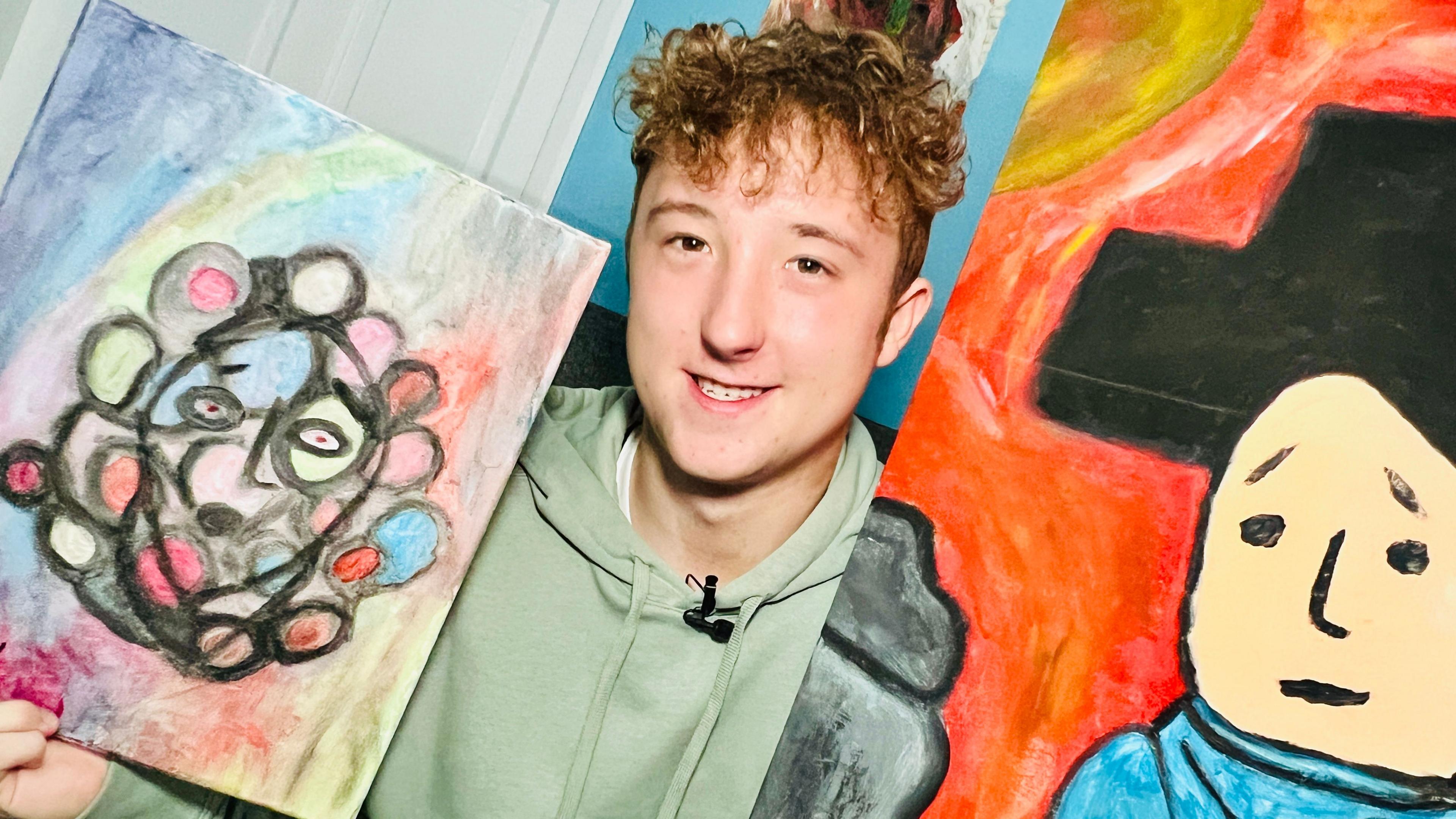More Covid 'lockdown babies' damaged by alcohol
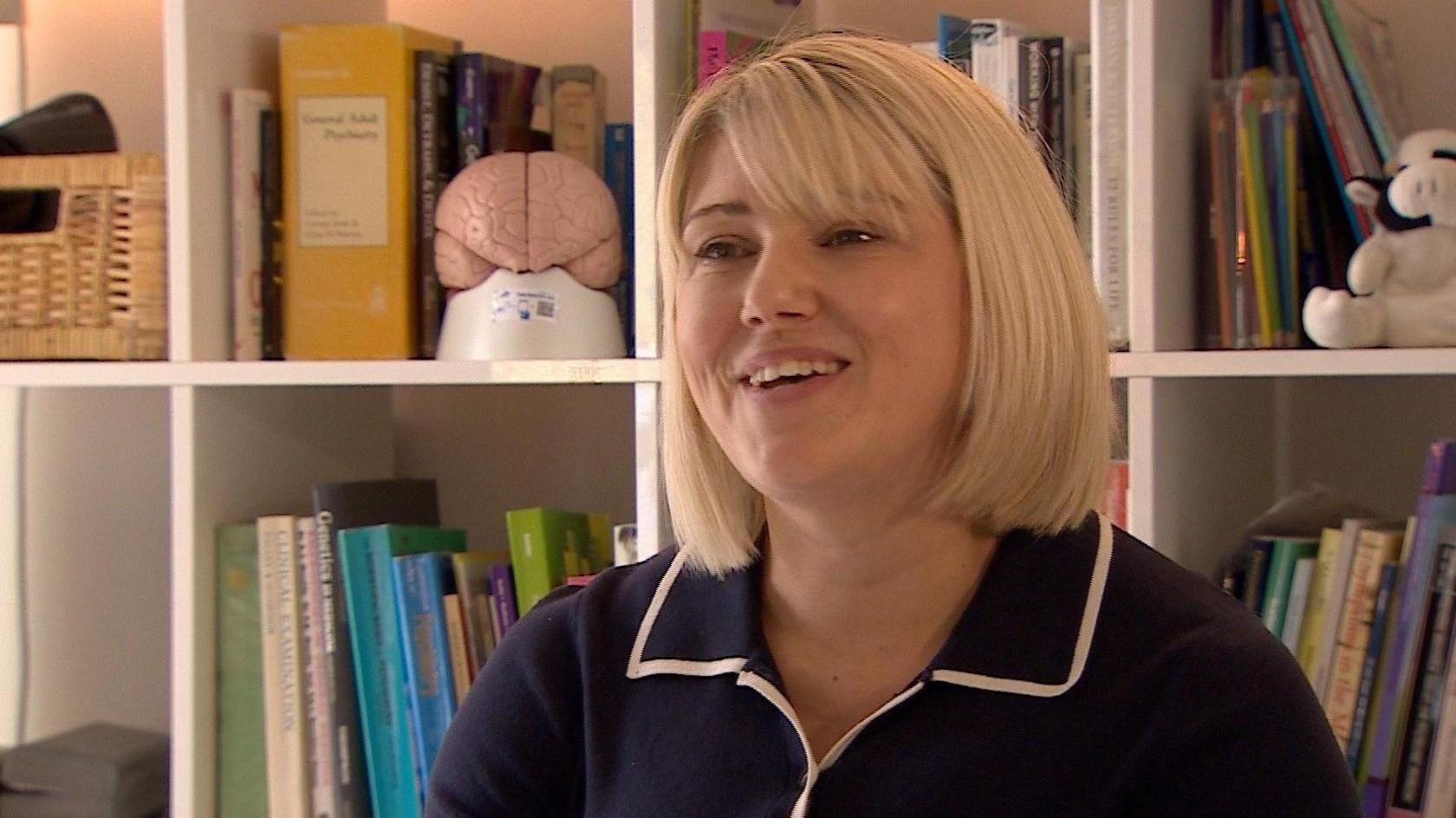
Dr Sarah Mills said there was no safe alcohol limit in pregnancy
- Published
Women drinking more alcohol than usual during Covid pandemic lockdowns has led to more children starting school this September with a condition caused by mothers drinking in pregnancy, a paediatric consultant fears.
Newcastle-based Dr Sarah Mills said about 900 babies were born in the north-east of England each year with foetal alcohol spectrum disorder (FASD), which can cause physical, behavioural and learning disabilities.
Dr Mills said there was a "risk that there's a higher proportion" of children with FASD who were born during the pandemic.
The founder of a charity for the condition said it was becoming clear a greater number of this generation of "lockdown babies" were different.
"Lockdown was the time where people were drinking more, people were drinking at home," Dr Mills said.
"We know that about half of pregnancies are unplanned. It was potentially a time where many pregnancies were occurring.
"So certainly, there's a risk that there's a higher proportion of children with FASD from that time period."
Founder of the FASD Network in Stockton, Maria Catterick, also believes there is a link between increased alcohol consumption during lockdowns and a rise in the number of children with the condition.
"We keep hearing over and over again, really from nursery age into the school ages now, that the children coming through are an unusual cohort," she said.
"They've often been described as the lockdown babies.
"When you actually start peeling it back and start explaining FASD, you see the light bulbs going on and people wondering, 'oh, perhaps what we're also seeing are symptoms of FASD with these children'."
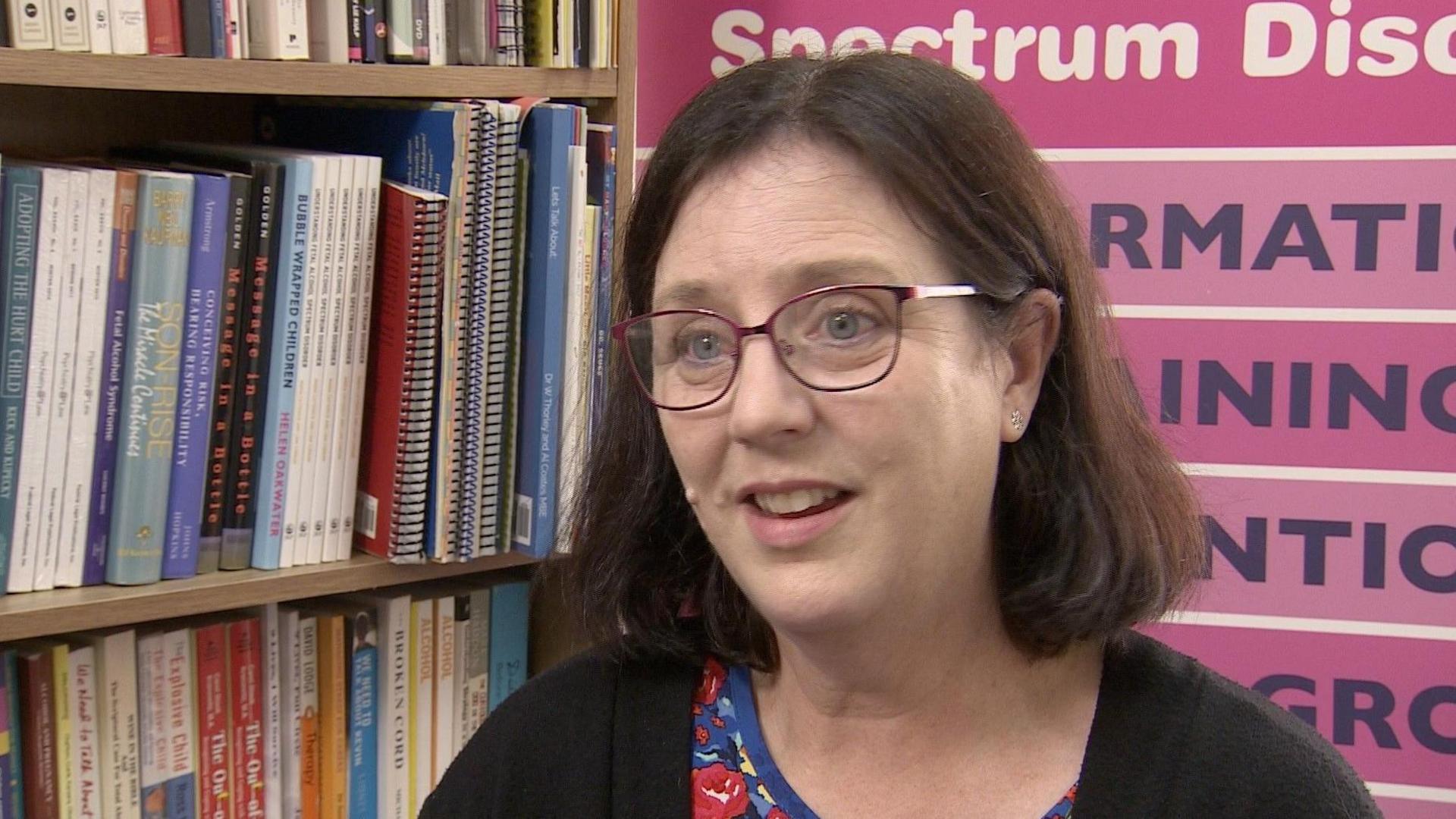
Maria Catterick founded the FASD Network 20 years ago
Harry, who lives with his adoptive parents near Sunderland, was diagnosed with FASD when he was three and a half.
Now eight, he is getting the support he needs but his adoptive mother, Palma George, said his behaviour remained challenging.
"You pick your battles," she said.
He had a "bit of a meltdown" over not wanting to wear his coat outside although it was cold and wet.
"There was punching and kicking," she said.
"I just had to let him calm down, you let him calm down, and he does eventually calm himself down."
But Palma said Harry is able to do things many other children his age cannot, such as working out how a computer game works by searching for information he needs on the internet.
Dr Mills, who met Harry after concerns were raised by his adoptive family, said they could see "something was different".
"They were really struggling with his behaviour; they were worried that there was something else going on," she said.
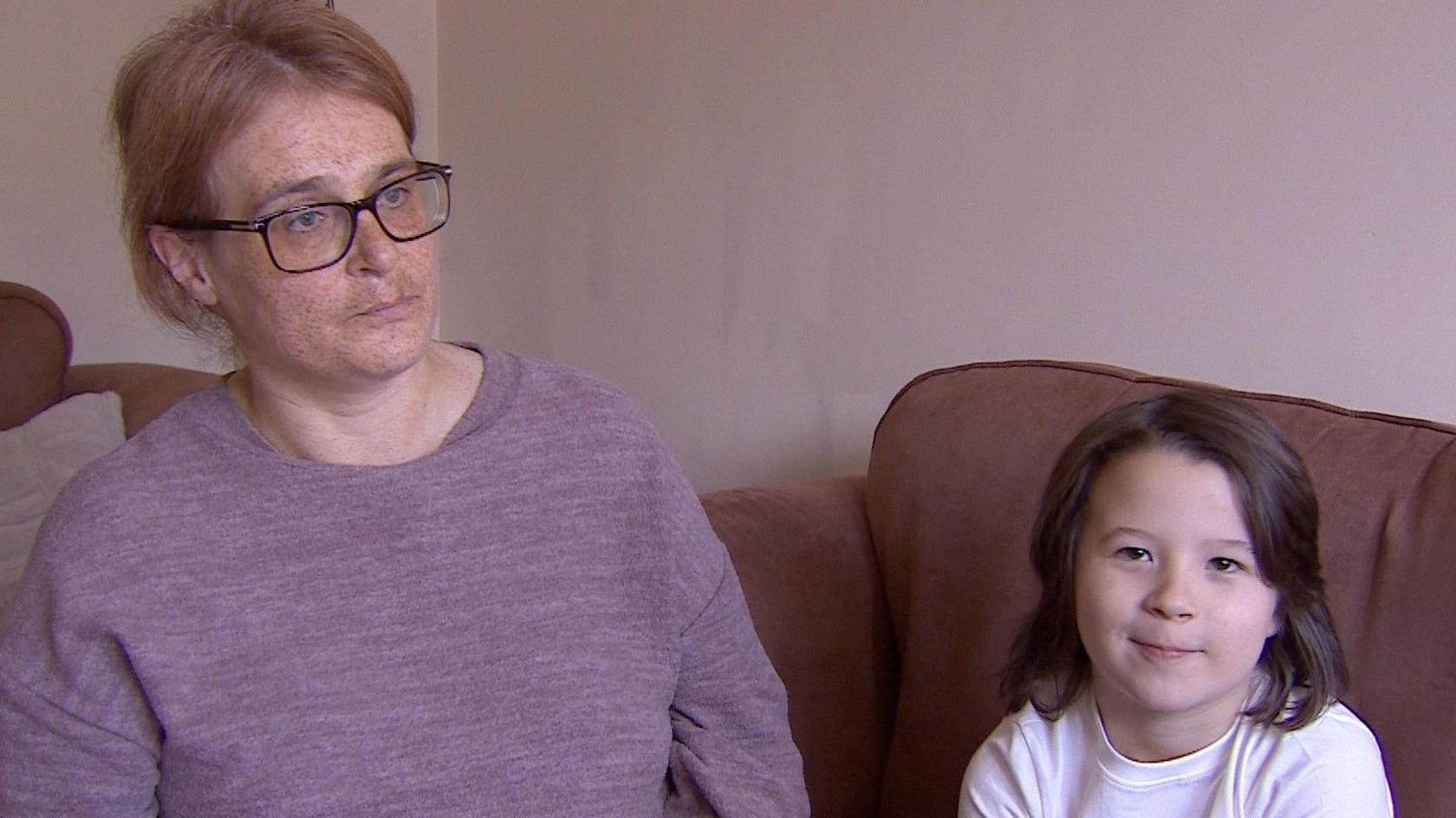
Palma George said Harry's behaviour could be challenging
Clare Devanney-Glynn, from Consett in County Durham, adopted her three children, aged 18,19 and 20, when they were babies.
They were diagnosed with FASD within nine months but the stress of looking after her children cost her her career and marriage, she said.
She believes individual healthcare providers "want to make a difference" but are "scared that the floodgates are going to be opened and thousands more children and young people are going to come forward for diagnosis".
But she believes these children are "already using up services".
"They're just using up the wrong ones," she said.
"They're the ones having difficulties in school, they're the ones being excluded from school, they're in specialist provision."
For this reason Ms Catterick believes diagnosis should be a priority not only to benefit individuals but society as a whole.
FASD can lead to adoptions breaking down, with the "trauma and mental health toll" of the child having to go back into residential care or fostering, she said.
Some turn to crime and the "costs will rack up" if it is not addressed, she said.
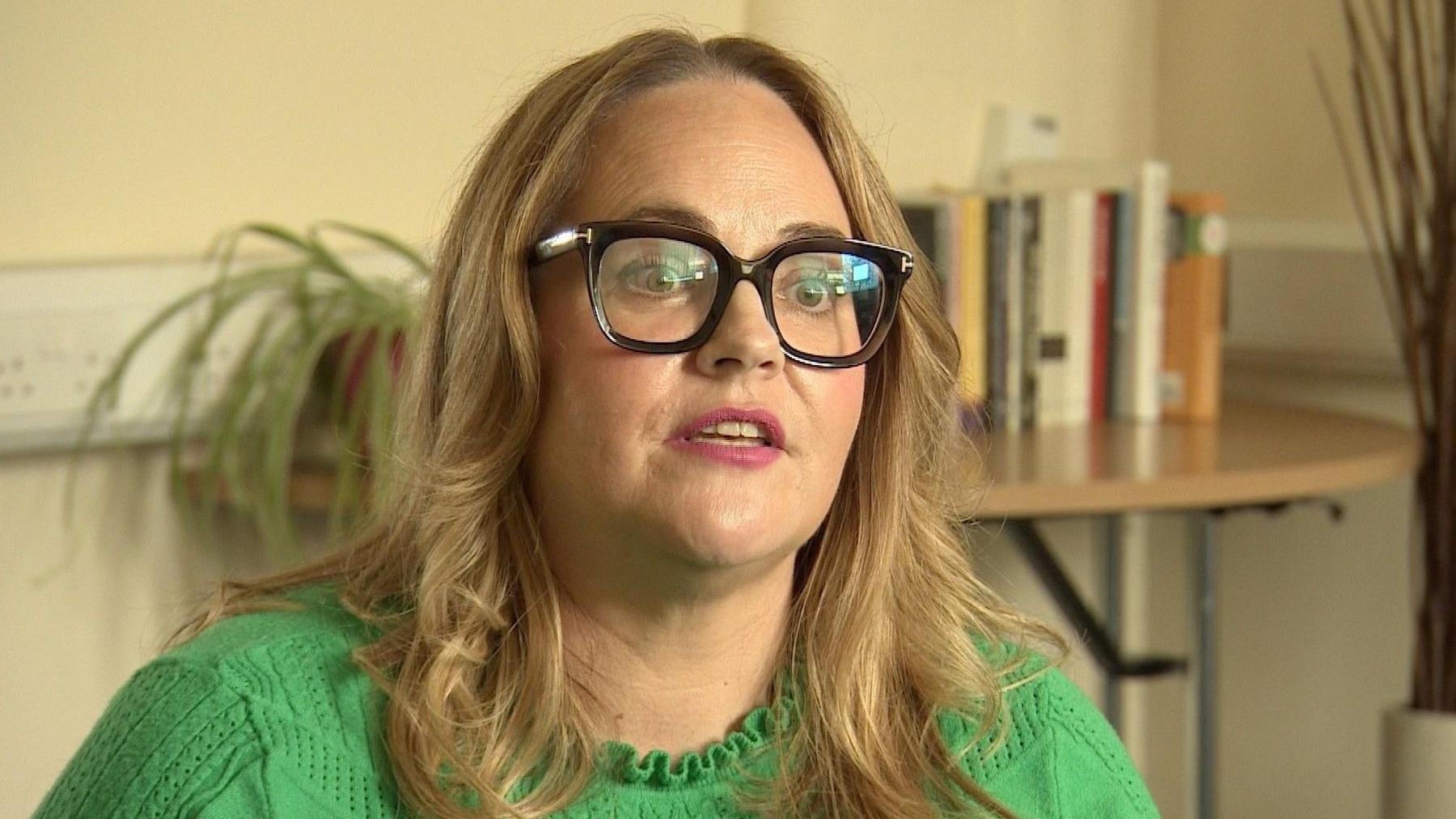
Clare Devanney-Glynn adopted her three children when they were babies
Delays in diagnosis can lead to issues not being identified and appropriate support not given, experts say.
Dr Mills said outcomes for children with FASD vastly improved with a diagnosis and the Department of Health and Social Care said the condition "should be diagnosed as quickly as possible".
"Guidance has been published to help the NHS improve both diagnosis and support for people affected by FASD and we expect all Integrated Care Boards to provide high quality treatment and support," a spokesperson said.
But the North East and North Cumbria Integrated Care Board said: "FASD is not currently commissioned as a standalone diagnostic service within the North East and North Cumbria, like many other regions in the country."
Dr Mills said she had calculated the prevalence of FASD in the North East using data from the Office of National Statistics.
"I estimated there were just over 21,000 young people under 18 affected by pre-natal alcohol exposure living in the North East and just over 900 babies born each year," she said.
Although some children with FASD had mothers who drank heavily during pregnancy - in some cases without realising they were pregnant - Dr Mills said the "sad fact is that there's no safe limit, so any drinking in pregnancy could risk the wellbeing of the baby".
But women who drink a lot of alcohol regularly are more likely to have children who are more severely affected than the women drinking "socially", she added.
Because of the "stigma around drinking" and people underestimating their alcohol consumption generally, birth mothers "don't often" raise the possibility of FASD.
Adopted or cared for children are more likely to seek assessment because their families are not responsible for what happened to the child before it was born and "the stigma is removed", she said.
Follow BBC North East on X, external and Facebook, external and BBC Cumbria on X, external and Facebook, external and both on Nextdoor and Instagram, external.
Get in touch
Do you have a story suggestion for BBC North East & Cumbria?
Related topics
Related stories
- Published10 September 2024
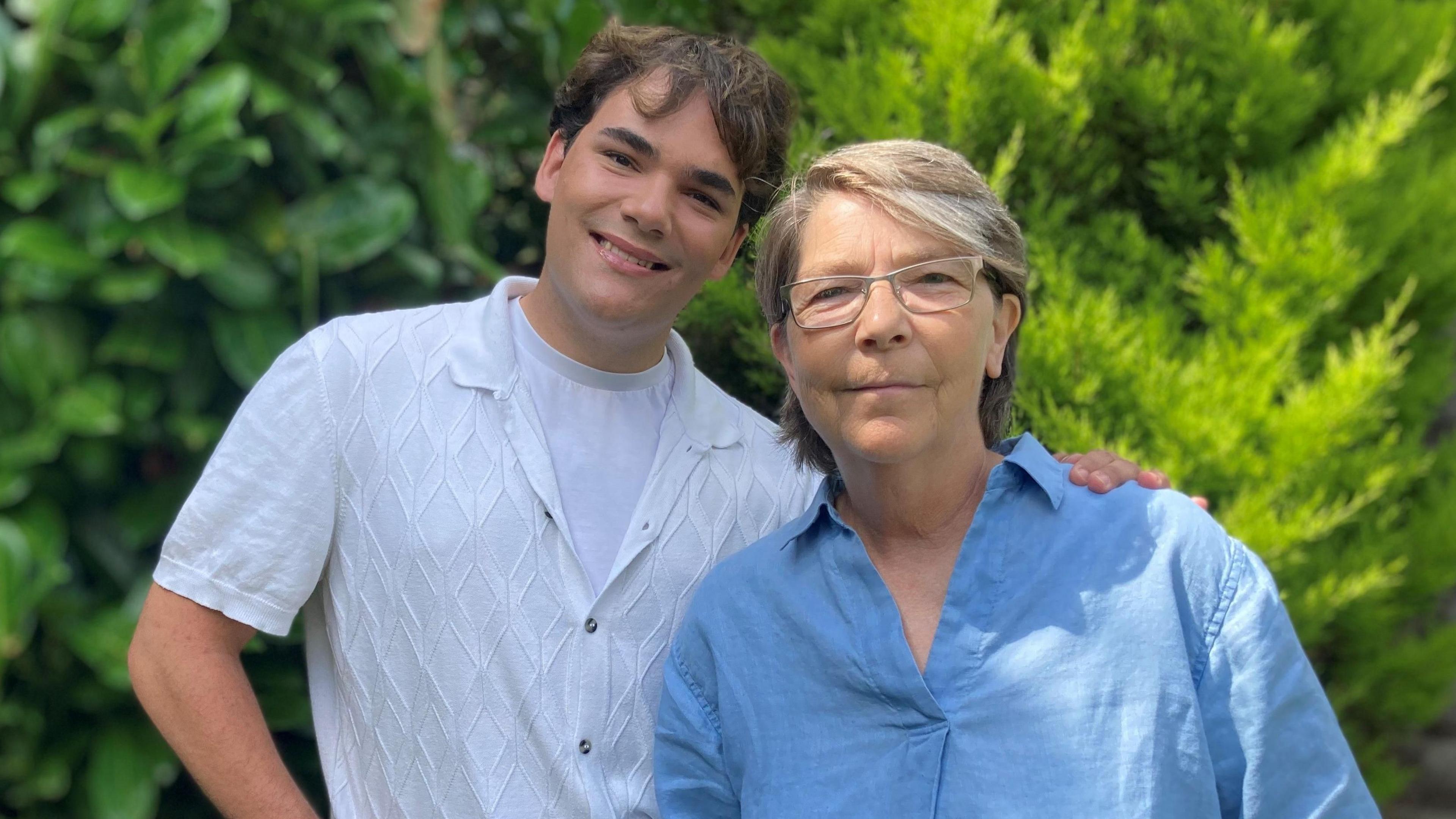
- Published20 December 2022

- Published19 September 2024
